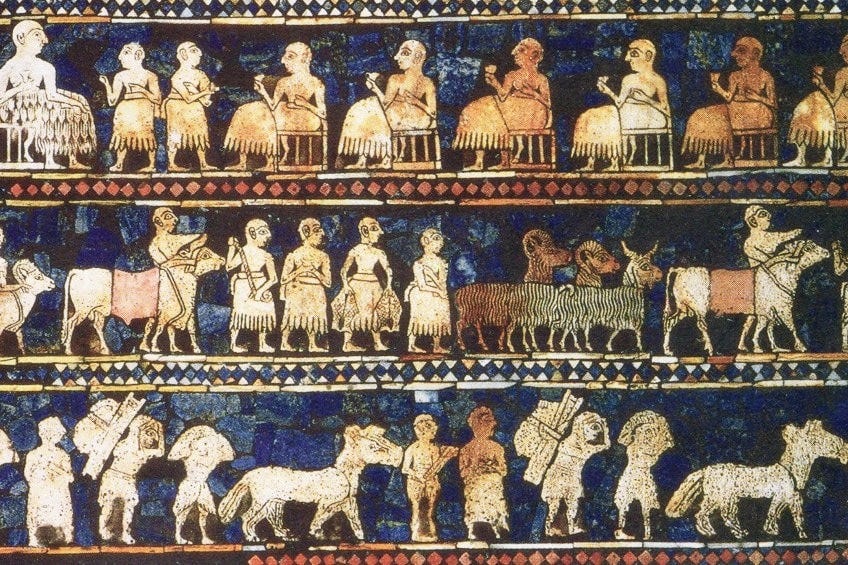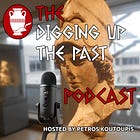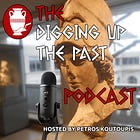Featured Episode - Mesopotamia: The Land Between the Rivers
Issue 52
In This Episode
In this exciting episode, host, Petros Koutoupis, sits down with guest historian and author, Dr. Amanda Podany to discuss her latest publication “Weavers, Scribes, and Kings” and to also talk about the Cradle of Civilization, Mesopotamia. How and when did the earliest urban settlements form? What were the motivations for the discovery of writing? We also discuss the influence and impact these Mesopotamian cultures made on the ancient world and so much more.
You can listen to this episode on:
Glossary
Akkadian - An East Semitic language spoken by an early Mesopotamian civilization starting around 2500 BCE.
Amorites - An ancient Northwest Semitic-speaking people from the Levant who also occupied large parts of southern Mesopotamia.
Ashurbanipal - King of the Neo-Assyrian Empire who reigned from 669 BCE to his death in 631 BCE.
BCE - Before the Common Era, the equivalent of B.C.
Canaan - The region that is the Levant and what is Israel and Syria today.
Cuneiform - A wedge-shaped logo-syllabic script used to write several languages of the Ancient Middle East.
Hammurabi - (c. 1810 – c. 1750 BCE) The sixth Amorite king of the Old Babylonian Empire, best known for issuing the Code of Hammurabi, claimed to have been received from Shamash, the Babylonian god of justice.
Herodotus - (c. 484 – c. 425 BCE) An ancient Greek historian and geographer.
James Henry Breasted - (1865 – 1935) An American archaeologist, Egyptologist, and historian.
Leonard Woolley - (1880 – 1960) A British archaeologist best known for his excavations at the Mesopotamian site of Ur.
Mesopotamia - A region of Western Asia situated between the Tigris and Euphrates rivers in what is today Iraq.
Naram-Sin - Grandson of King Sargon [the Great], he was ruler of the Akkadian Empire, reigning c. 2254–2218 BC.
Neo-Assyrian - An ancient Mesopotamian civilization (ca. 911 - 609 BCE) originating from northern Mesopotamia and extending their empire across the entire Near East.
Neo-Babylonian - An ancient Mesopotamian civilization (ca. 626 - 539 BCE) originating from southern Mesopotamia and extending their empire across the entire Near East.
Rim-Sin I - A contemporary to Hammurabi of Babylon, he was the ruler of the city-state of Larsa from 1822 - 1762 BCE.
Sargon [the Great] - The first ruler of the Akkadian Empire, known for his conquests of the Sumerian city-states between the 24th to 23rd centuries BCE.
Shulgi - Was the second king of the Third Dynasty of Ur, reigning from c. 2094 – c. 2046 BCE.
Sumer - The earliest known civilization in the region of southern Mesopotamia (south-central Iraq).
Ur-Nammu - Founded the Sumerian Third Dynasty of Ur, ruling between c. 2112 – 2094 BCE.
Recommended Books
Weavers, Scribes, and Kings: A New History of the Ancient Near East
By Amanda Podany
In this sweeping history of the ancient Near East, Amanda Podany takes readers on a gripping journey from the creation of the world's first cities to the conquests of Alexander the Great. The book is built around the life stories of many ancient men and women, from kings, priestesses, and merchants to brickmakers, musicians, and weavers. Their habits of daily life, beliefs, triumphs, and crises, and the changes that people faced over time are explored through their own written words and the buildings, cities, and empires in which they lived.
Rather than chronicling three thousand years of rulers and states, Weavers, Scribes, and Kings instead creates a tapestry of life stories through which readers will come to know specific individuals from many walks of life, and to understand their places within the broad history of events and institutions in the ancient Near East. These life stories are preserved on ancient clay tablets, which allow us to trace, for example, the career of a weaver as she advanced to become a supervisor of a workshop, listen to a king trying to persuade his generals to prepare for a siege, and feel the pain of a starving young couple and their four young children as they suffered through a time of famine. What might seem at first glance to be a remote and inaccessible ancient culture proves to be a comprehensible world, one that bequeathed to the modern world many of our institutions and beliefs, a truly fascinating place to visit.







